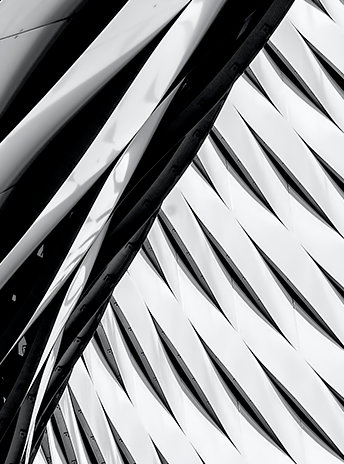
The School of Architecture, Engineering, and Design uses a Project-Based Learning (PBL) methodology that is further strengthened through continuous evaluation. Integrative Projects (IPs) make it possible to move beyond traditional learning silos.
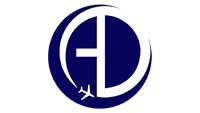
The AirDivision Club was founded in September 2015 with the aim of developing projects related to the aerospace, industrial, and informatics sectors. The Club is currently working on the design and manufacturing of drones and flight tests. Excursions include visits to aeronautical and aerospace centres such as Iberia and Aerotec. We also conduct visits to the airfield, the National Institute for Aerospace Technology, and many other relevant destinations. The Club is currently developing the PicoSat project, where different disciplines are integrated with the aim of launching a satellite. This is being done with the help of our collaborators.
Meetings are held on Wednesdays at 11:30. The volume of work dictates when the meeting will end. The location of the meeting is constantly changing due to the different requirements of the field of work.
Contact information
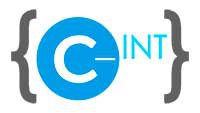
The Computer Science and New Technologies Club (abbreviated C_INT in Spanish) is made up of students from a variety of technology-based degrees. Here they have the opportunity to meet, share ideas, and complement each others’ knowledge. Many different projects are developed at the Club, all within the field of computer science.
It is a multidisciplinary club whose core concept is learning by doing (Project-Based Learning) in the field of new technologies. These technologies include IOT, Cloud, and drones, in addition to those related to computer science and programming. The Club began during the 2019-2020 academic year, with one professor and 35 students.
The core elements of the club are:
Lead Professor / Facilitator: Javier Sánchez Soriano
Contact Information
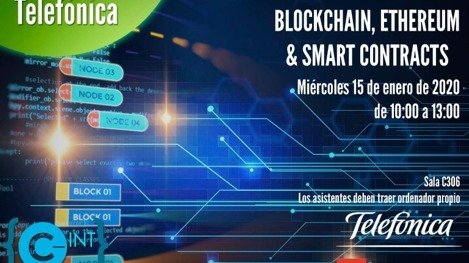
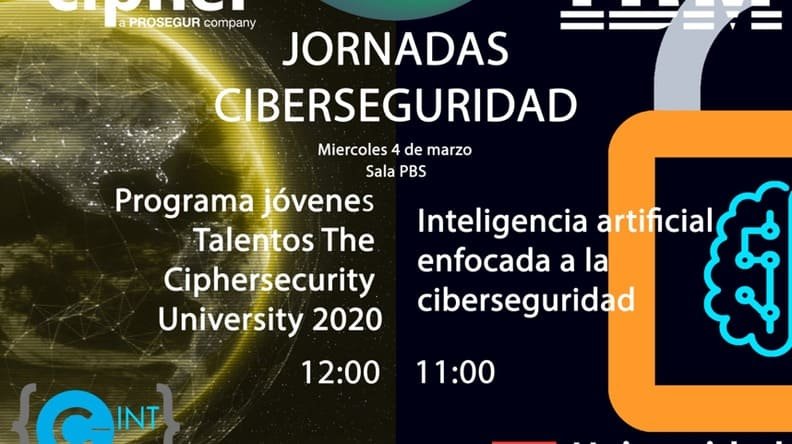
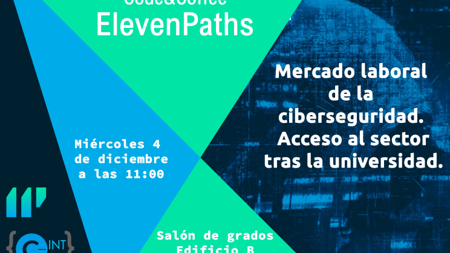
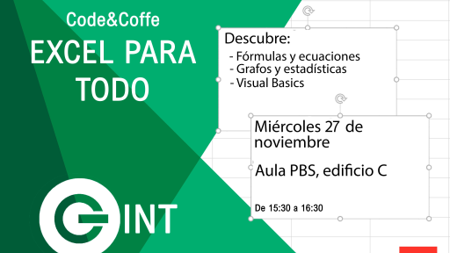
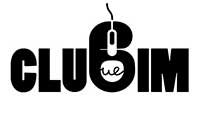
The BIM (Building Information Modelling) Club was born in 2015 in the School of Architecture, Engineering and Design with the desire to offer a space where anyone interested in this way of developing projects can find information, help, support or simply a place to work on their project.
As usual we will be in the classroom C101 on Thursdays from 15:30 uninterruptedly, until the end of the day, except for possible changes that we will communicate through social networks, such as our Twitter account @CLUBimUE or those of the Student Delegation and its Facebook page.
The format is Open Classroom or Workshop, so that anyone who is interested (student, alumni or teacher) can freely approach to work there and solve their doubts or participate in the workshops and talks that are organized; as well as propose or request that others are organized, in person to any of the organizers, or by email by writing to clubimue@gmail.com.
The intention is to open it to all those disciplines that need it, and we already have professors directly involved in the areas of Architecture, Building and Civil Engineering, for now. Weekly talks are organized on different topics and with an informal character, depending on the demand that the different interested parties send us, or on topics that are of interest or topicality.
The most usual suspects of the Club are:
José Agulló (ARQ est), Sarai Marcos (ARQ est), Óscar Liébana (ARQ est), José Jurado (ARQ cons), Yago Becerra (ARQ cons) and Eduardo González (ARQ deleg).
And a little less usual, but no less suspicious:
Miguel García (ARQ est), Beatriz Inglés (ARQ mep), Francisco Mateos (ARQ mep), José Fernando Gallego (ARQ mep), Víctor Bustamante (CIVIL) and Elena Novales (EDIF).
And we continue incorporating people...
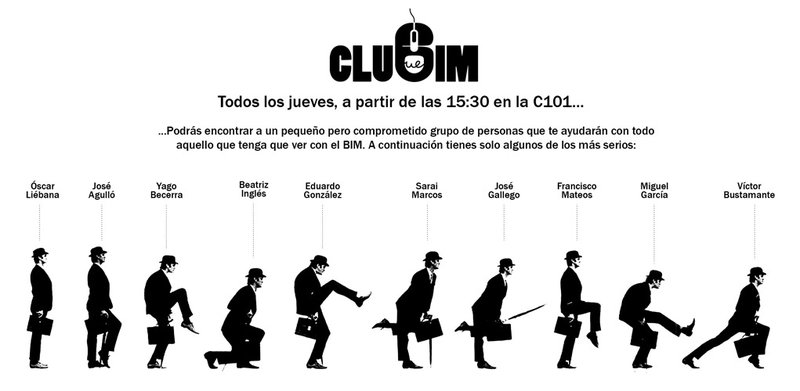
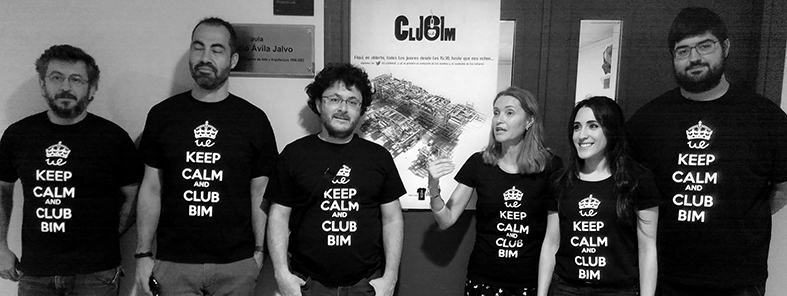
Contact information
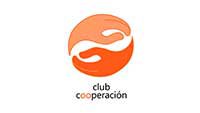
The Cooperation Club aims to develop international cooperation and social volunteering activities. These activities are also linked to the teaching activity of the School and its teaching projects: integrative projects, end of degree projects, end of master projects and R&D projects oriented to international cooperation.
We work in collaboration with NGOs for social volunteering in Madrid and in developing countries in any activity related to social responsibility.
Two projects are currently underway:
Molo-Kenya: we are developing a project to expand an orphanage, in collaboration with the local NGO Chazon. The students of the Degree in Fundamentals of Architecture are designing and building two pavilions that will house a kitchen, living-dining room, toilets and bedrooms for 20 children and an educator.
Facebook page of the project in Molo
Nepal: The project, still in execution, consists of the rehabilitation of a house with anti-seismic criteria, for a disadvantaged family of the population of Gatlang (Nepal). In addition, work is being carried out to adapt the urban paving and water connections in some neighborhoods of the locality.
For more information about the club, please write to cooperacionkenia@gmail.com.
They are part of the club:
Andrea Torres and Belén Juanes (students).
Felipe Asenjo, Esther Redondo and José Agulló (teachers).
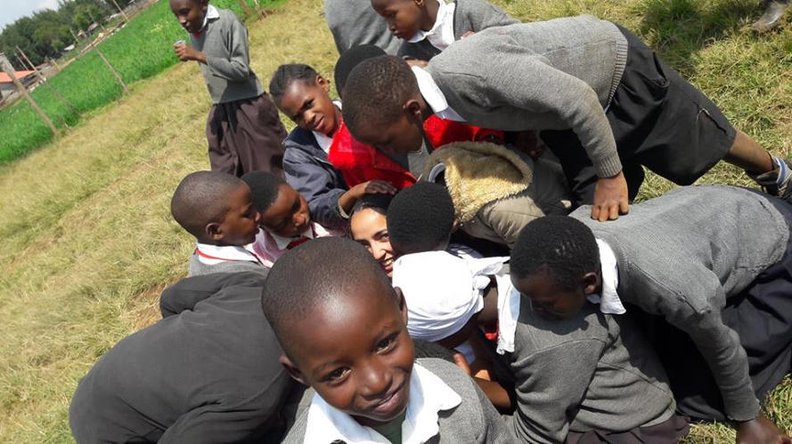
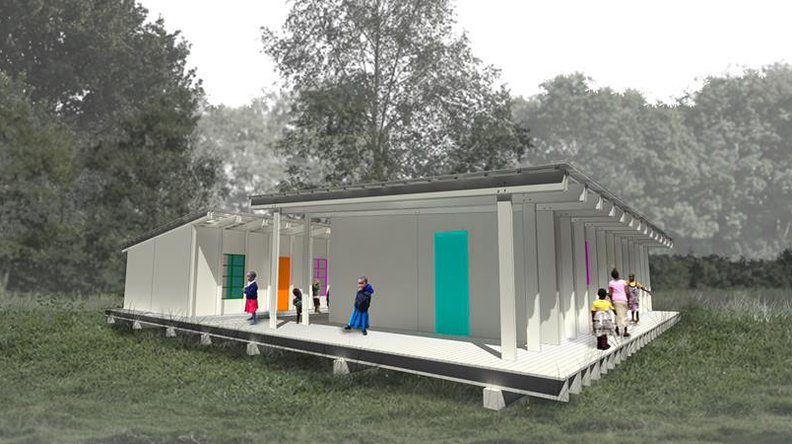
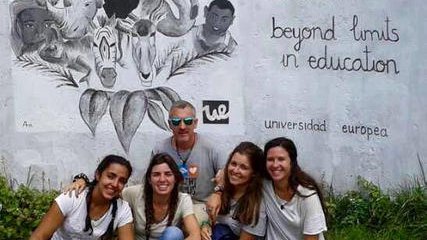
The Digital Fabrication Club has started in 2015 to explore the possibilities given by the new fabrication tools that are available to us at the European University and to face the design and construction of a large pavilion that will be visited by thousands of people at IFEMA during the celebration of the Mulafest Festival. Every Wednesday we will start the session with a short lecture on the latest technological and design advances in architecture.
As usual we will be in classroom C019, Wednesdays at 11:30, except for possible changes that we will communicate in our WhatsApp account.
The format is Open Classroom or Workshop, so that anyone who is interested (student, alumni or teacher) can freely approach to work there and solve their doubts or participate in the workshops and talks that are organized; as well as propose or request that others are organized, in person to any of the organizers, or by email by writing to pablo.gil@universidadeuropea.es.
It is a workshop focused on interdisciplinary collaboration between engineers, architects, artists and designers to develop an ambitious project pushing the limits of each discipline (that's nothing!).
Club regulars are: Sergio Herreros, German Colomar, Manuel Paredes , Jesús Méndez Marcos Nuñez, Marina García, Ignacio Martínez, Guillermo Sánz, Eduardo González, Cristina Ortiz, Vicente Sánchez, Carlota G. Daries, those from FabLab UE, Miguel Carmona, Juan Huarte, Sergio Bemposta and the Robotics Club, Paco Lajo, Zacarías Timón and Pablo Gil.
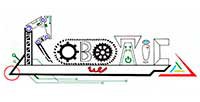
Perhaps, to say that the club is the union of students seeking a common goal is a bit ambiguous. But it is. It is not the union of students of the same degree, it is the union of students who want to either improve their knowledge in the field of robotics, or in many cases, begin to understand and work with it.
Our students range from first-time undergraduates to graduates looking for ideas or support for their master's projects. This allows us to create a space of coexistence and self-learning where the more knowledgeable students help and guide the beginners.
It is necessary to understand that the world of robotics is increasingly involved in everyday life, and directing the future towards this world can be a great opportunity. The club aims, among other things, that the members acquire the necessary knowledge through teamwork, which will help to improve basic skills for professional development and increase the chances of success in finding employment in this sector and other related sectors.
And who knows? Maybe among the members of the club will emerge future entrepreneurs capable of making their passion for robotics their future, creating their own companies.
The field of robotics is so broad that it is impossible to set a single objective. Three objectives have been established, trying to cover different fields, specialties and trainings.
If you are a student and would like to join the club, send an email to roboticsclub@universidadeuropea.es.
Don't worry if you want to join at any time of the year, there is always room for new students and new projects!
You can also find us through the hashtag #roboticsUE on Facebook and Twitter.
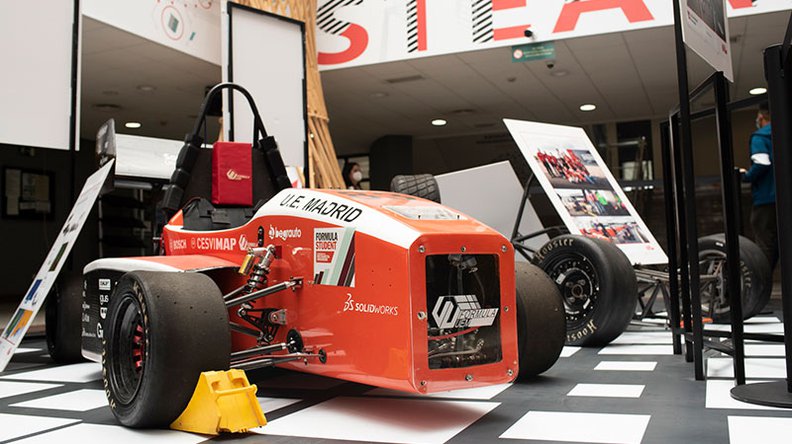
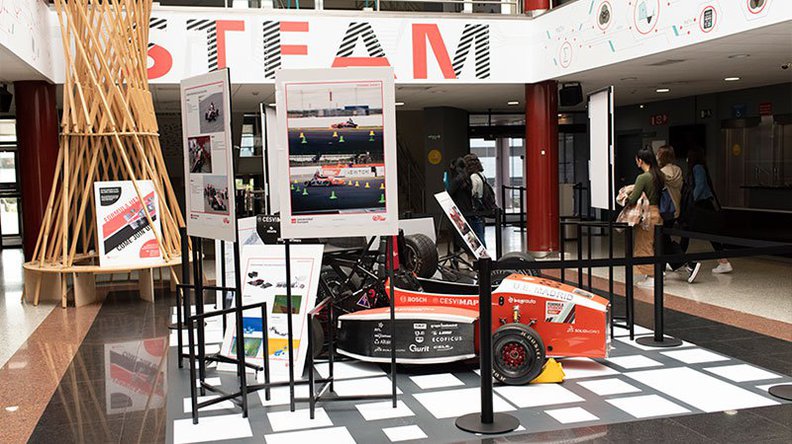
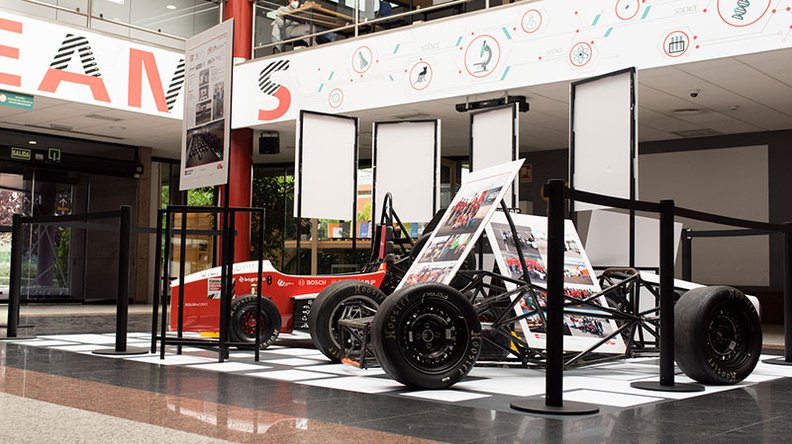
The Formula UE Club, the flagship of technology and competition at the European University, offers you the opportunity to be part of a high-performance team that has been participating in international competitions for more than 10 years. This team designs and manufactures its own competition car every year. You will have unique experiences and learning by working on a real project from day one. You will develop your soft skills, a key factor to succeed in your professional future, such as leadership, teamwork, communication, negotiation. In addition to having state-of-the-art facilities such as the Automotive Workshop, FAB LAB, the new Industry 4.0 Space Laboratory with sound technologies, cybersecurity, digital twin and much more.
The UE Club Motor Association is formed by two main projects: Formula UE and FUEM EV Formula UE also known as Formula SAE, is a competition between students from universities around the world that promotes excellence in engineering through a competition where team members design, build, develop and compete with a small but powerful single-seater. The other project is FUEM EV: this team seeks to create an OpenSource electric racing car for Formula Student. Its objectives include promoting research and development in the field of electric motors and batteries and energy efficiency. It also pursues the creation of an interdisciplinary team between all areas of engineering, design, marketing and business.
Contact information
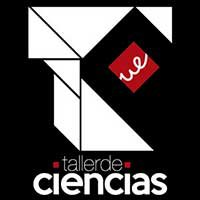
The Science Workshop (TC) was born in 2016 in the School of Architecture, Engineering and Design with the desire to provide a shared learning space where students can study, resolve doubts, expand knowledge, experiment. In short, a place to promote the applications of Science and thus develop new skills in this area in a fun and enjoyable way.
As usual we will be in classroom C116 on Wednesdays from 9:30 to 13:30 (Villaviciosa de Odón campus), except for possible changes that we will communicate through social networks, such as our Twitter account. @TCienciasUE.
These are some of the videos of the TC:
The format is Open Classroom or Workshop, so that anyone who is interested (student, alumni or teacher) individually or in groups, can freely approach to work there and solve their doubts or participate in the workshops and activities that are organized, as well as propose or request that others are organized, in person to any of the organizers, or by email by writing to Mariana Arce (mariana.arce@universidadeuropea.es).
The Workshop is open to all disciplines related to Science (Physics and Mathematics), and all students from different degrees are welcome.
The usual suspects of the Club are:
José Antonio Pérez (FIS and MAT), Niurka Barrios (FIS and MAT), Juan Carlos Maroto (FIS and MAT) and Paloma Velasco (MAT).
And a little less usual, but no less suspicious:
Luis Gracia (MAT), Daniel Gómez (FIS and MAT), José Manuel López (FIS and MAT), Alberto Aijón (FIS and MAT), Javier Martínez ( MAT) and Rosa Rodríguez (FIS and MAT).
And we are still adding people...
We are waiting for you!
One of the challenges of teaching Electronics in the Master's Degree in Industrial Engineering (MUII) is the diversity of specialties of the students in class. Students with degrees in Mechanics, Electricity, Organization and Electronics converge... the latter being about 10% of the class.
Another important aspect is that many of the students who have not had a special interest in electronics or have had a difficult learning experience, see the subject as complicated and far removed from its applications in everyday life.
For these reasons, an approach close to Systems Engineering has been taken, the students have to be able to carry out a project as close to real life as possible, which can have an application in their lives.
The course is focused on this objective in four stages:
In the three editions of the subject during the course 2015 - 2016, 19 projects of diverse subject matter have been carried out, among which we can highlight the development of systems for sports, music, plant care, temperature control systems, servers based on Arduino (Internet of Things), etc.
In short, it is all about "learning by doing". A fun and really effective way to motivate and learn for real life.
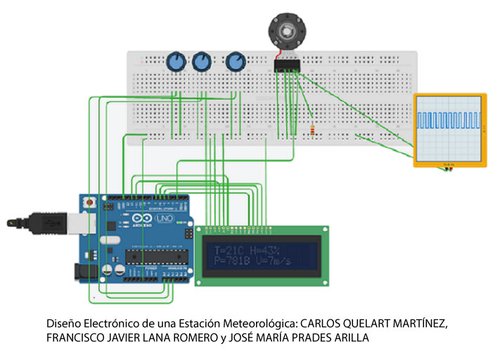
Art, design and programming come together to create video games. Programming course with Gamemaker, e-sports tournaments, etc.
Contact information
The Physics Club is formed by students from different degrees in technological areas who share a vocation for science and the scientific method.
It is a multidisciplinary university club, whose axis is Project-Based Learning.
The main lines of action of the club are:
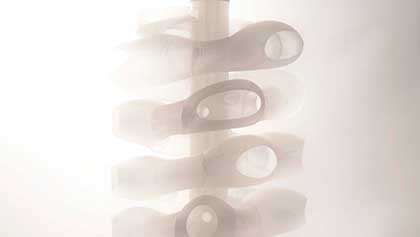
Francisco Javier Fuentes Quijano, Academic Year 2016-17
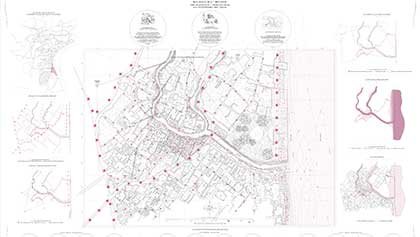
María Martínez Morón, Academic Year 2018-19
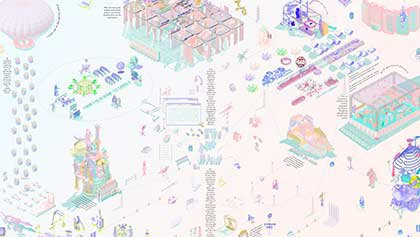
Dana Barale Burdman, Academic Year 2018-19
Every degree programme within the School, including both bachelor’s and master’s, has a representative. There is also a representative for all of the bachelor’s degrees as a whole. Each month, the Director of the School meets with the representatives from the bachelor’s and the master’s degrees. The purpose of these meetings is to analyse the progress of the programmes and to discuss any proposals, concerns, or anything that may require attention or corrective action. These meetings are in addition to the other forums through which students can maintain a consistent dialogue with the academic community.
Thank you!
Your request has been sent successfully.
Thank you!
Your request has been sent successfully.
Sorry!
Your request couldn't be sent.